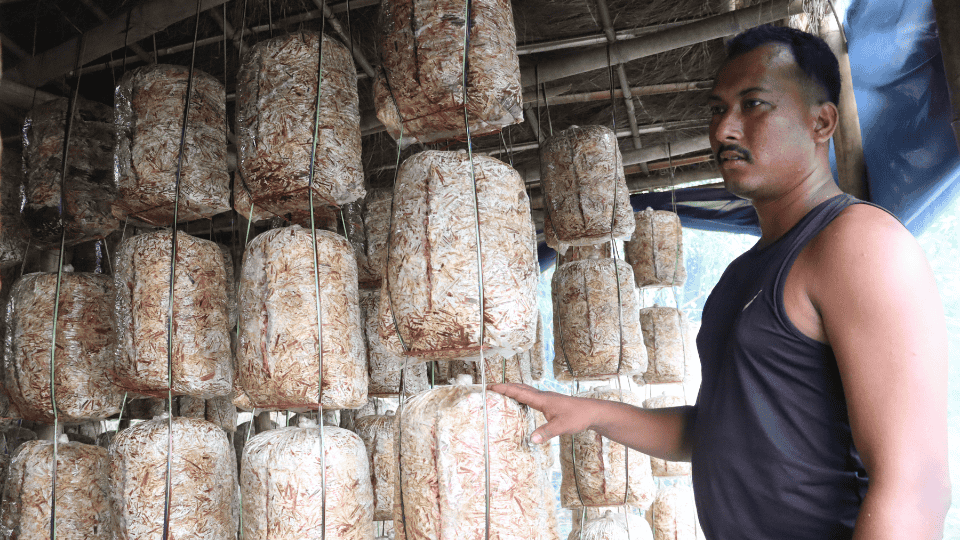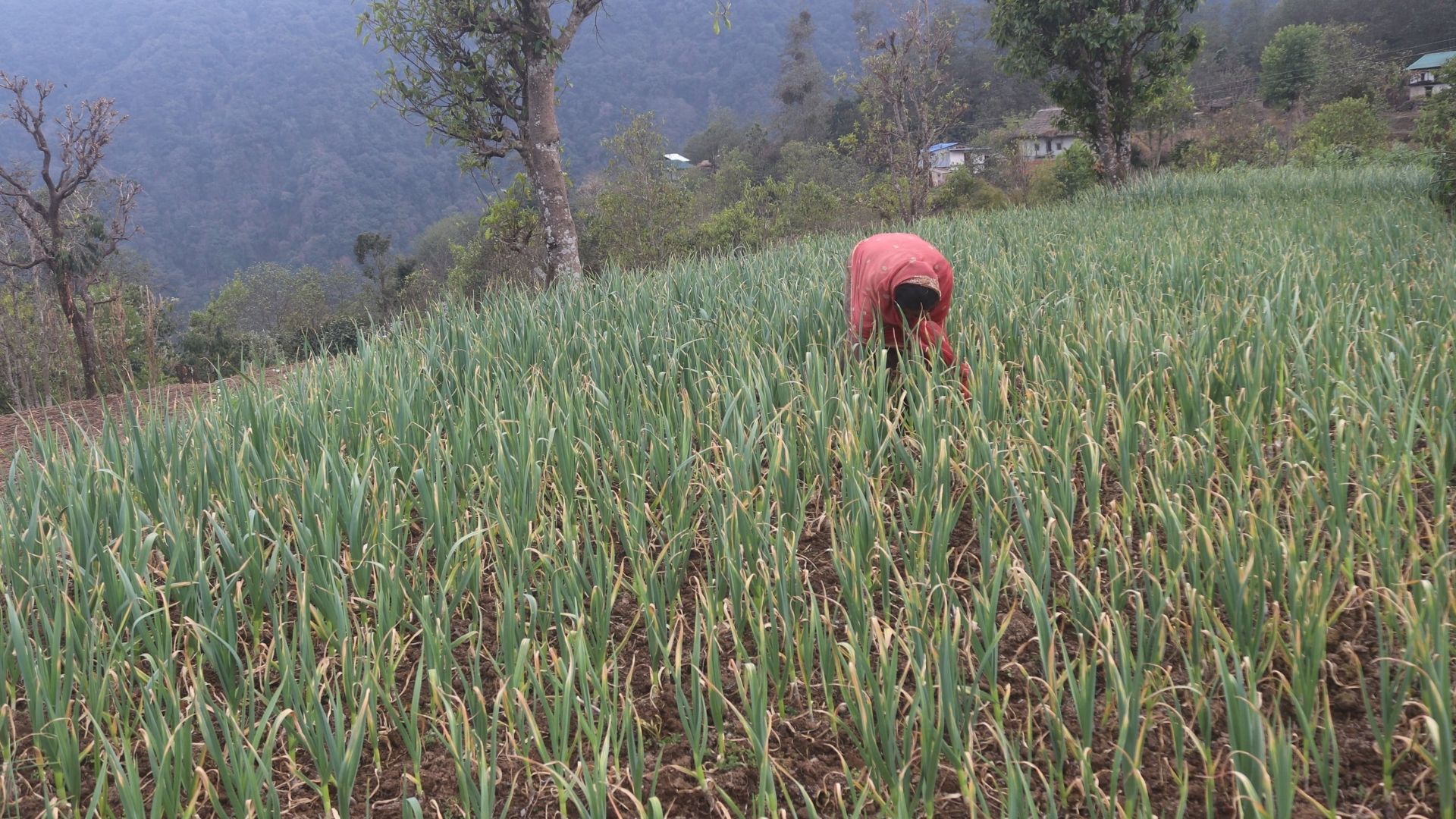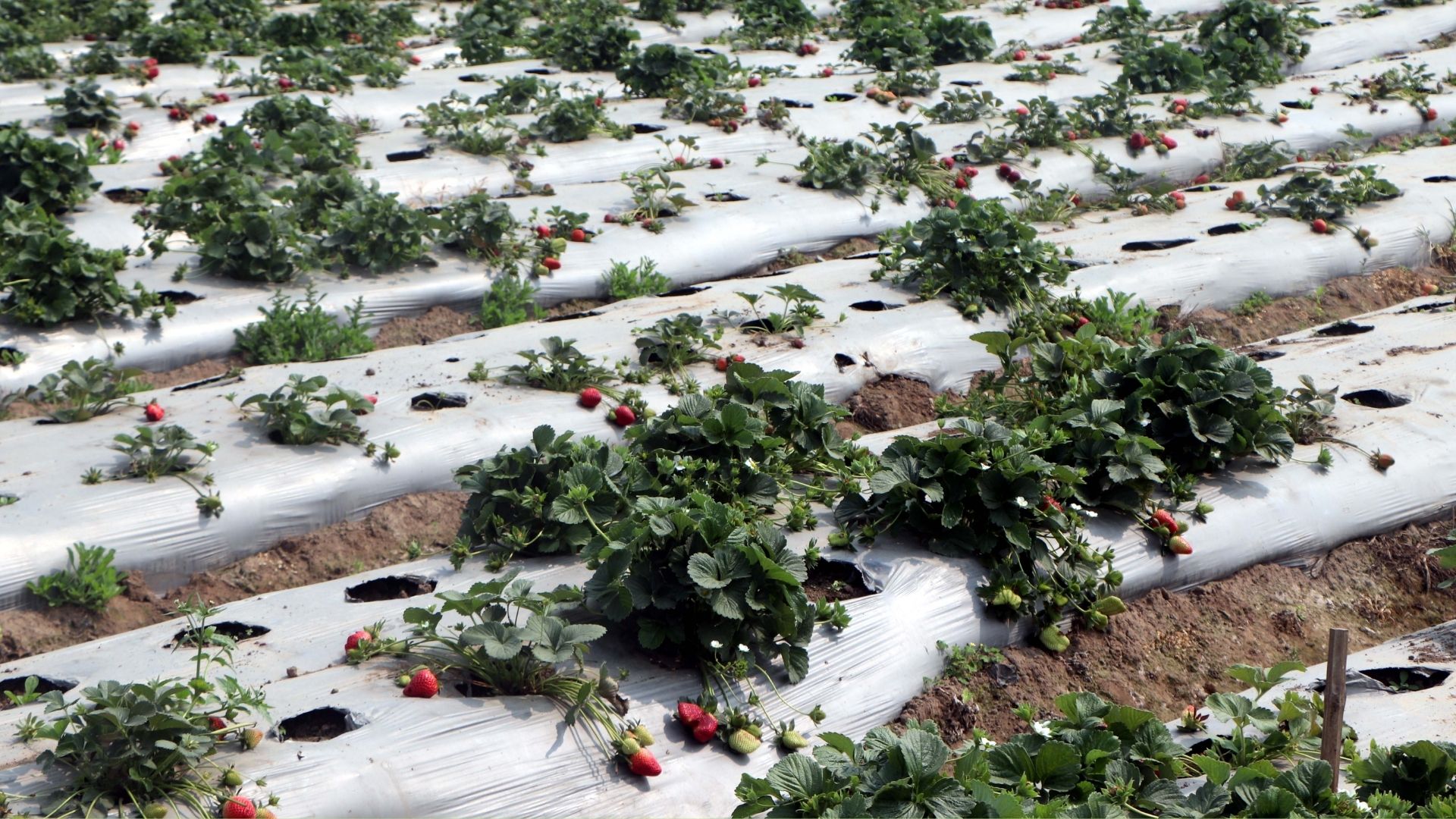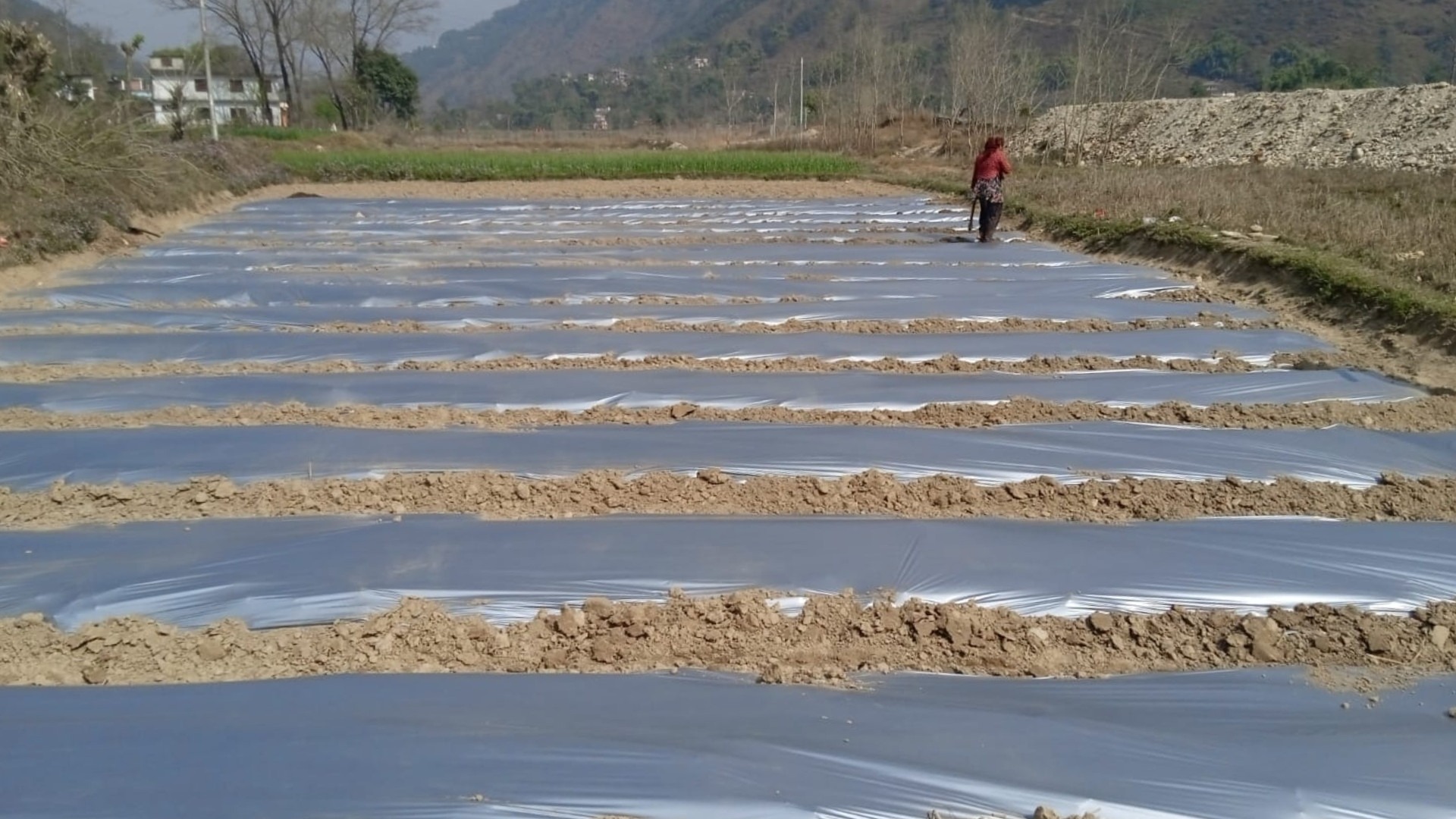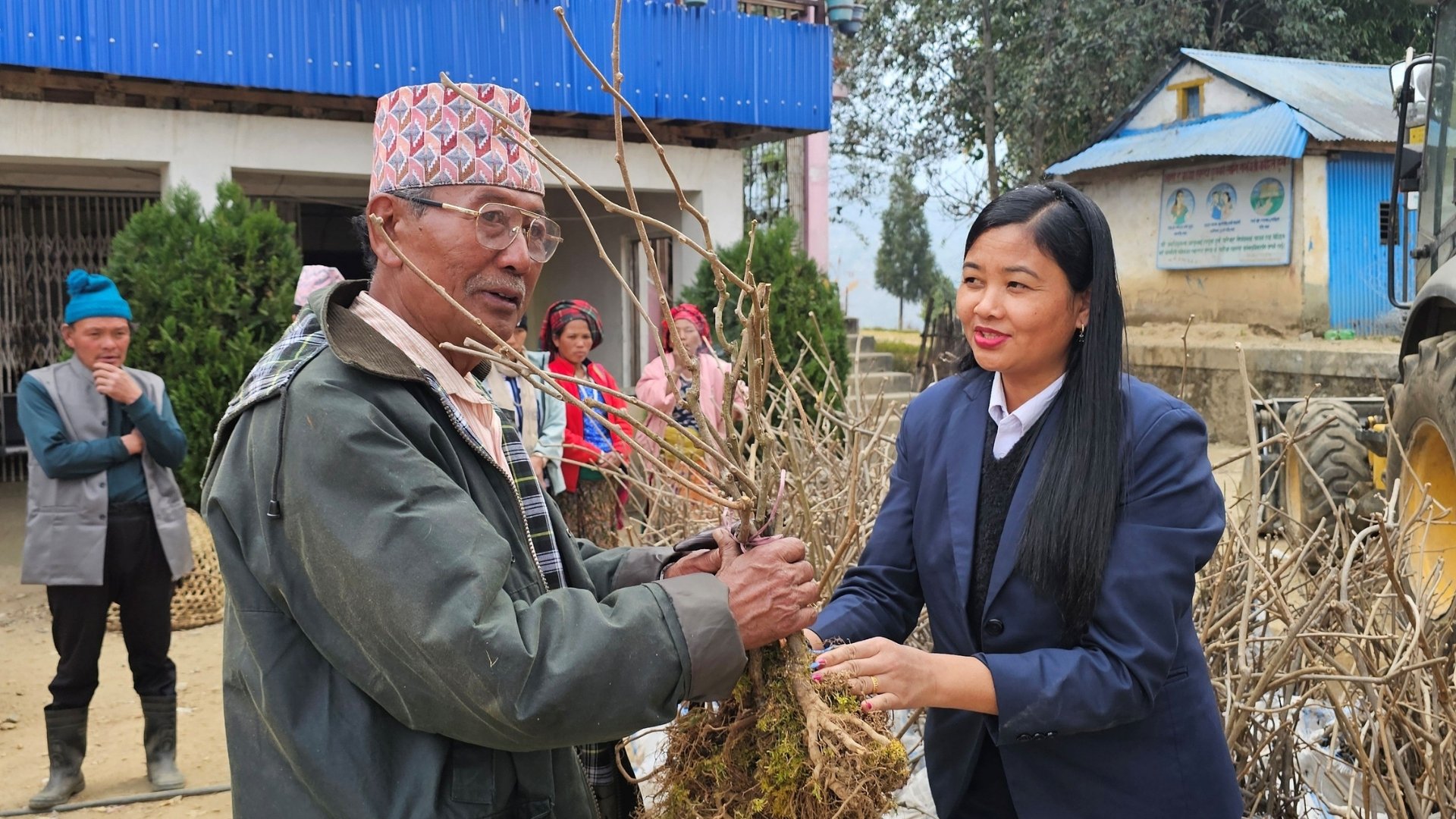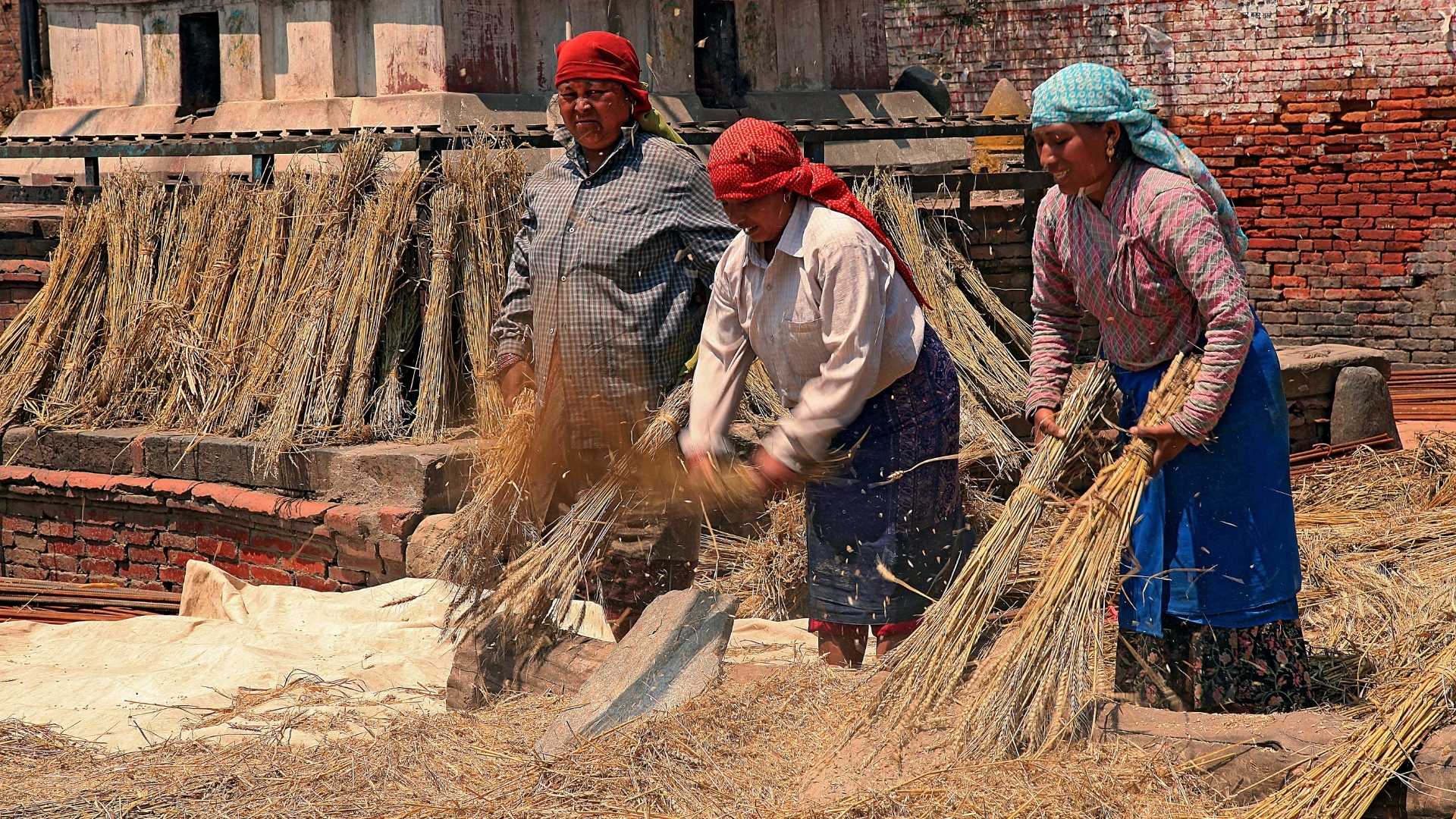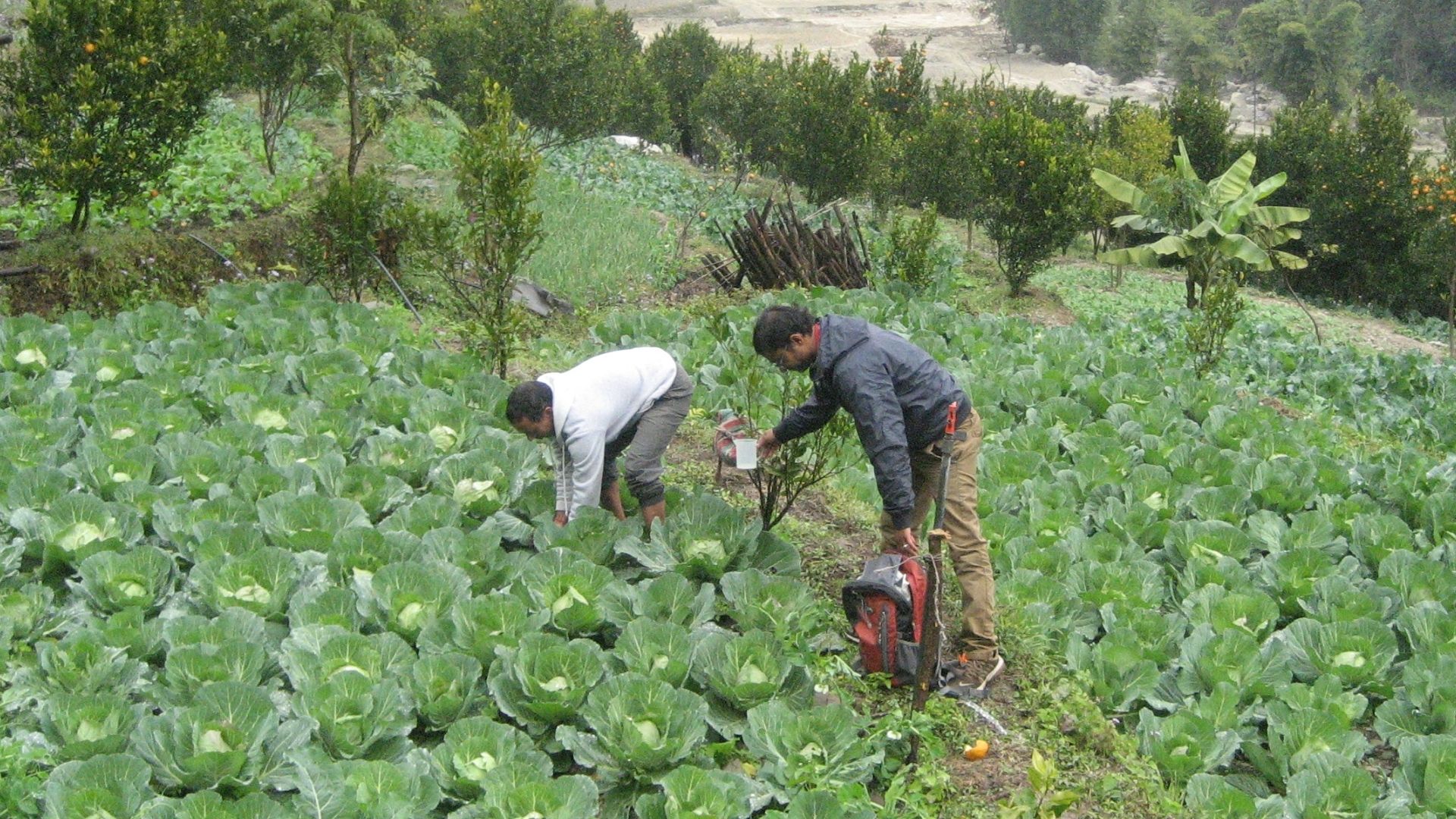Ajit Bhujel from Barahakshetra Municipality-9, recently returned home after three years of foreign employment, and now has started saving more than Rs. 1.8 million annually by cultivating mushrooms in his garden. Once burdened by the scorching heat and struggles of life in Dubai, he is now dreaming green dreams inside his mushroom tunnels.
While working in Dubai, Ajit used to earn NPR 35,000–40,000 per month. However, it was barely enough to make ends meet. Most of it was spent on food and sending money home, with nothing left to save — sometimes he even had to take loans. He says, “When I returned to my village, I didn’t have much money in hand, but I had courage and experience in my heart. I decided to do something in my own country rather than going abroad again, and that’s how I started mushroom farming.”
He adds, “In the beginning, there were many challenges, but over time the business picked up. I started in 2013 (B.S. 2070) with just two tunnels, investing around NPR 227,000. Initially, there were several problems like finding a market, lack of technology and skills, and disease outbreaks. But with training and experience, I overcame those issues. Gradually, the market problem also faded, and now everything is going well.”
Currently, he is cultivating mushrooms in 12 tunnels. According to him, during the off-season, over 300 kg of mushrooms are produced daily, and in season, the number goes up to 600 kg per day.
The prime season for mushroom production is from mid-December to mid-March (Poush to Falgun). He says, “During that time, even though production is high, the market price is low — selling at NPR 60 to 80 per kg. But currently, I’m selling mushrooms at NPR 160 to 170 per kg.” Thanks to this profitable farming, he’s able to manage household expenses and still save over NPR 1.8 million annually. His total mushroom sales range from NPR 2.2 to 2.4 million per year, out of which he saves NPR 1.8 million after expenses.
Now, he has no problem finding a market for his mushrooms. Although marketing was a challenge in the beginning, it’s no longer an issue. Traders now come directly to his farm to purchase mushrooms, and some even call to ask if any are left. He says, “When traders come to the farm, we offer mushrooms at NPR 20 to 30 less per kg. If I deliver to the market myself, I earn more profit. I usually deliver to local markets like Dharan, Itahari, Chakraghatti, Kalabanjar, etc., while traders from places like Biratnagar and Rajbiraj come to collect the mushrooms themselves.”
Currently, Ajit has employed two young people on his farm, and other family members are also engaged in the mushroom business. He believes that the idea of “there’s nothing in Nepal” is outdated. With the will to work, it is very much possible to earn well in one’s own country.
He says, “Earnings made abroad often get spent abroad. But if you learn a trade and start a business, the income can be substantial.” He further explains that mushroom farming requires special care and isn’t always consistent, but with limited land and small investment, good profits can still be made.
For mushroom farming, straw and lime are primarily required. Additionally, one needs bamboo and thatched sheds, along with plastic and mesh. If one works diligently for four to five days, the farm can run smoothly for a whole month. He is currently cultivating the Kanya variety of mushrooms, which are grown without using pesticides, making them healthier and more in demand in the market.


